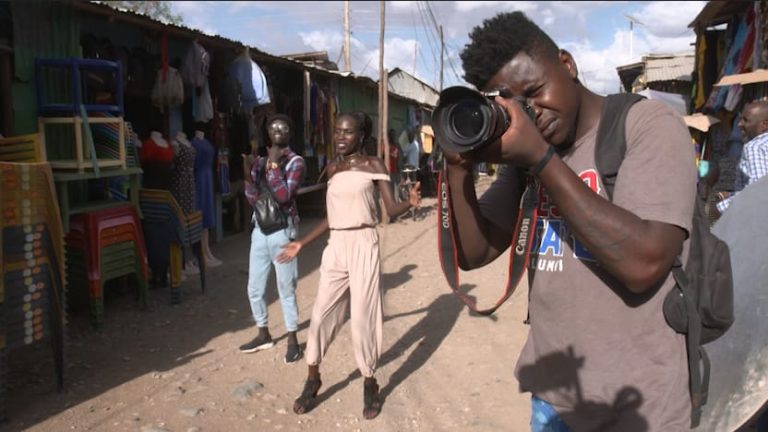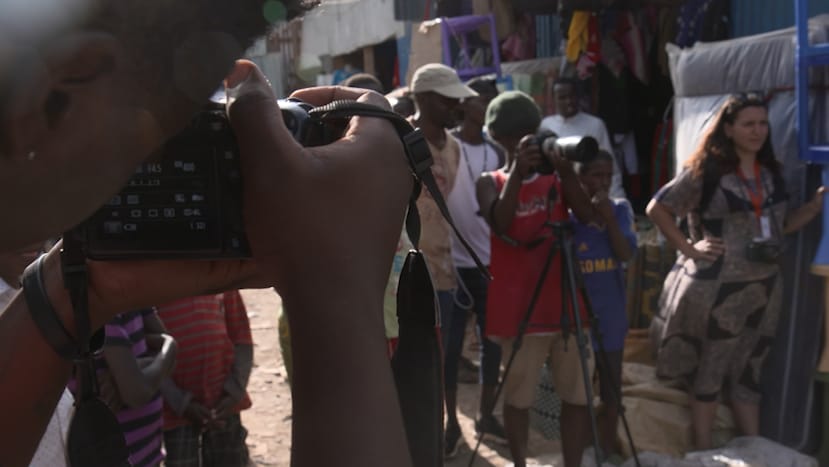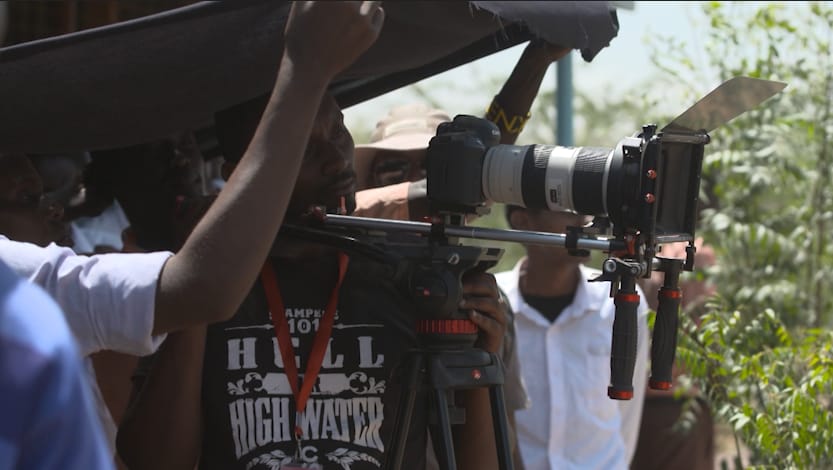
The latest episode on Inside Africa, CNN International travels to Kenya’s Kakuma refugee camp which has become a home for more than 180,000 people fleeing war and violence. The programme learns how young people in the camp are telling their own stories through film, photography and personal productions.
CNN spoke to FilmAid Kenya employee Aroji Otieno who described the artistry within camp: “The creative scene in Kakuma is very vibrant… Is mainly due to a collision of cultures coming together …. It feels like it’s an expression not only of themselves, but also an expression of trying to interact with one another and trying to find that common spot where everything is the same and that’s the best way to be able to express that.”

With the help of FilmAid, dozens of films are created each year in the Kakuma camp and young people learn creative and technical skills, such as filmmaking, journalism and photography. Otieno speaks about the success of FilmAid’s intervention saying: “We know that some of the students have gone back to their country of origin, like in Sudan and Somalia… [and] in Somalia most of the media houses we were informed that actually they are being managed by former FilmAid students.”
Mercy Akuot, a singer who lives in the Katuma camp, tells CNN how she fled after being faced with the prospect of a forced marriage. She explains: “I went ahead and asked him [father] who I was getting married to – he told me someone I always knew as an uncle… I said to myself I would rather die. That might be their culture but not mine.”

At the Kakuma camp, Akuot hopes to inspire other young girls. She says to Inside Africa: “As youth here in the camp we support each other… I want other girls to be inspired by me. I want them to learn from me, to pursue their dreams. Music is not something that girls can do in my community, but I want them to look at that and be like – if Mercy can do it, I can do it. The camp is a great opportunity for girls to pursue their dreams because here rights are followed, rights are enforced, but then you go back home it’s very different. I can’t do music I can’t have a man of my choice, I can’t even wear trousers.”
Despite her success as a singer, Akuot explains to CNN the disadvantages she still faces: “As a young refugee I’ve realized that no one ever takes us serious. They always think that we want to grab money from them… We are young people very energetic, we have talents we have dreams and we can pursue them. People should look at us in a way that they should just like any other citizen in another country.”
Filmmaker and founder of Exhale Key Aminah Rwimo, who also lived in the Katuma camp, has successfully won several awards for her films. She tells CNN; “Sometimes when I come I say, oh! I made this? I don’t have a word to express what I am feeling because I never imagined [it for] someone like us… refugees are just good for nothing people they just want to be helped they doesn’t think about the future so at least this will be an example to those people who doesn’t who think the other side of refugees only.”
On her future aspirations, Rwimo explains to Inside Africa: “I want to work hard, improve on my work, improve on my skills so I can reach my dream. I want that Exhale Key to work as a company. Not just the way it is, I want it to be big! And that will create job opportunity. It will create me an image in the society, it will give me what I want because I always dream of a big house! [laughs] very nice, yes!”
